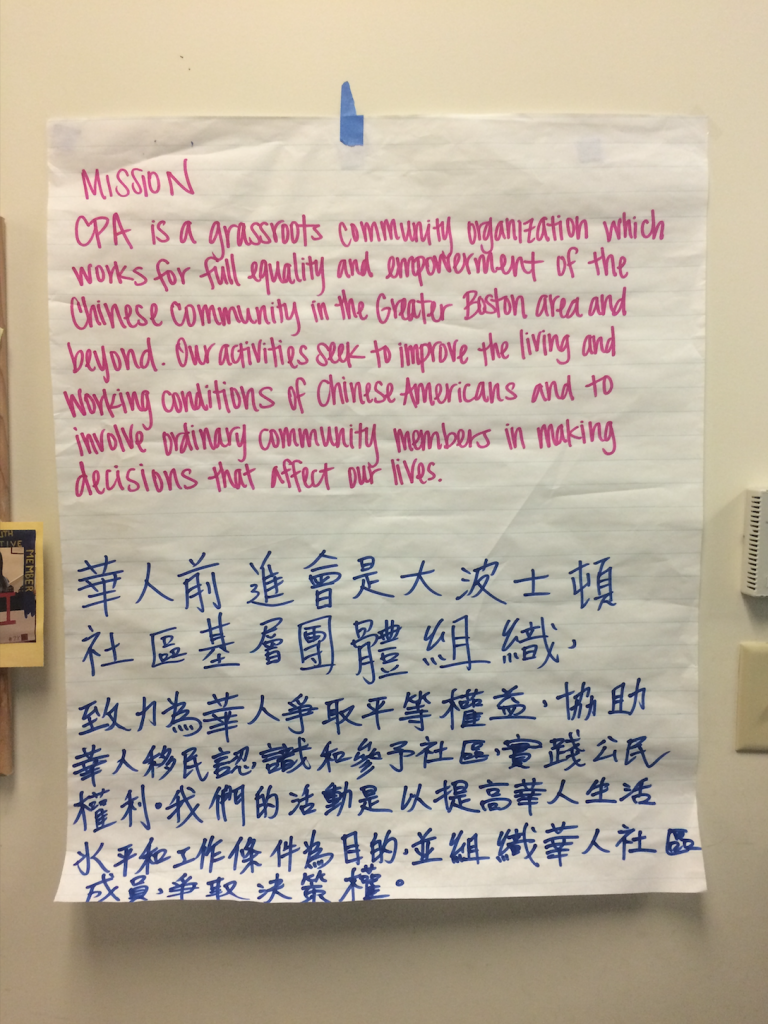 Project Title: Expanding the Notion of Public Good (Presentation Link)
Project Title: Expanding the Notion of Public Good (Presentation Link)
The Chinatown Progressive Association (CPA) organizes working-class Chinese/Chinese-Americans in Boston around issues of housing and workers rights. Civic action and political education around economic and racial justice are embedded in their organizing model. Currently, CPA is fighting for community control and ownership of public land alongside other work around Chinatown Stabilization, including affordable housing preservation and helping tenants fight eviction and displacement from development. The Public Good Campaign at CPA is centered around this fight over community land ownership, specifically with Parcels 12, 21, 25-27.
We discovered after further conversation with Mark at CPA that the Public Good Campaign is linked to a larger 10-Year agenda effort led by Massachusetts Community Labor United (CLU), a coalition of community and labor organizations around Massachusetts. It is centered on pushing back against the increasing privatization of essential social services such as healthcare, and public transit.
During the weekly CPA staff meeting last Friday, Karen Chen, the director of CPA, voiced the lack of a deeper understanding of what is “public good.” Utilizing our skillset—urban design, art, graphic design—and co-design framework, we plan to help expand the notion of “public good” through public education. We hope to explore and engage with CPA members (including residents and workers) around what is at stake with increasing privatization for the working class Chinese/Chinese-American community, and how to mobilize and take action against it.
At the Right to the City Coalition meeting at the Asian American Resource Center, neighborhood leaders and residents from around Boston explored the definition and potential of collective power. They discussed how with collective power, Boston neighborhoods can resist the privatization of land, education, transportation, and labor markets. We hope to connect the notion of public good with community members’ everyday lives, expanding their understanding, aligning them with CPA’s mission, and ultimately mobilizing them to learn, build and take action collectively.